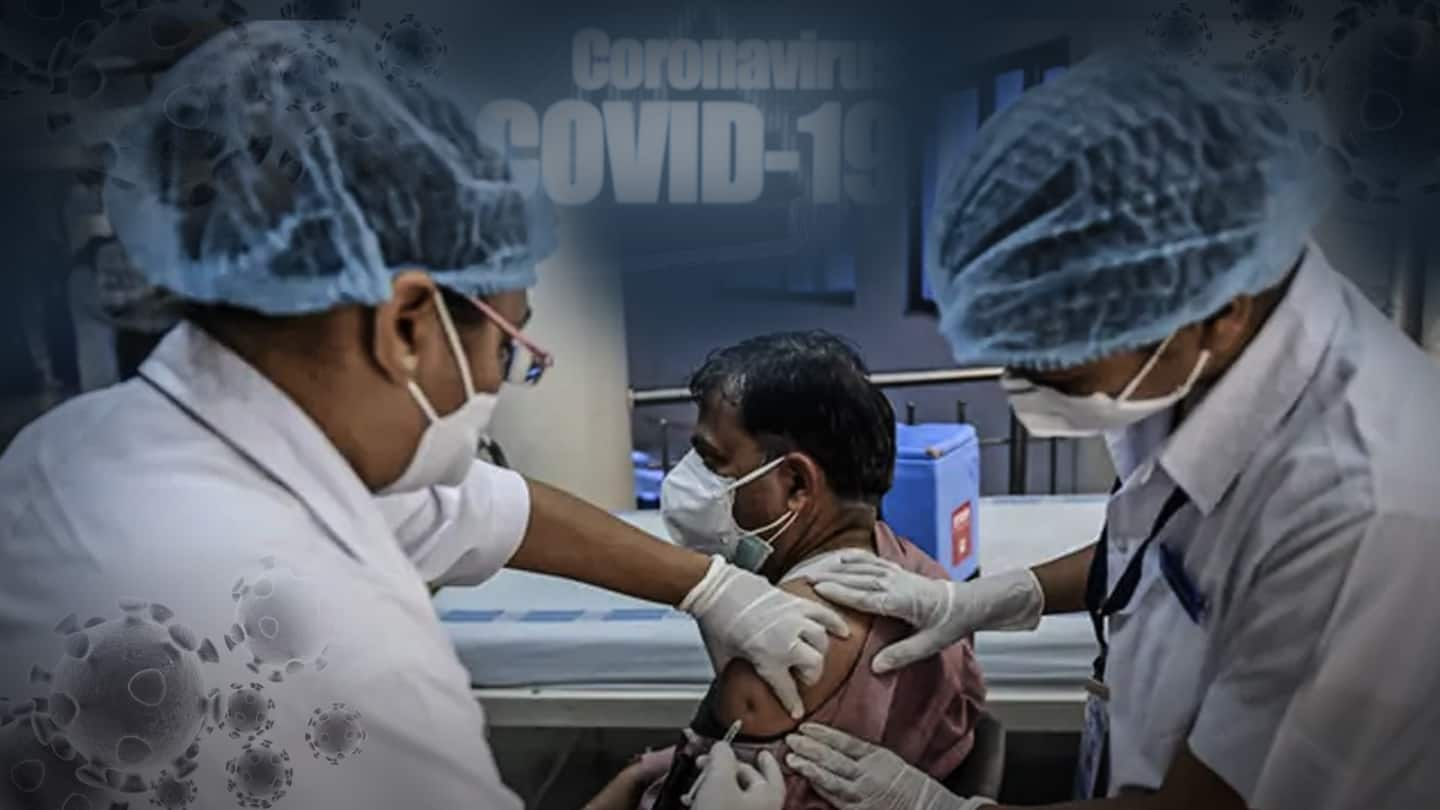
Free vaccines; on-site registration: Centre revises COVID-19 vaccination policy
What's the story
The central government on Tuesday issued revised guidelines for its COVID-19 vaccination policy.
The policy was formally revised a day after Prime Minister Narendra Modi announced that the Centre will now procure 75% of all vaccine doses manufactured, which will be provided to states for free.
The vaccination policy was updated after the government faced widespread criticism from the public, experts, and the courts.
Details
New policy to come into effect from June 21
According to the Union Health Ministry, the new policy will come into effect from June 21, 2021, and will be "reviewed from time to time."
The Ministry said it will provide states/union territories additional support across funding, procurement, and logistics for vaccines.
"It also facilitates scientific prioritization, wider access, harnessing of private sector capacity and flexibility at the state and local level," it said.
New policy
What does the updated policy say?
As per the new policy, the government will procure 75% of Vaccine doses produced in India. These will be provided to states for free and will be administered to citizens for free through government vaccination centers.
These doses will be prioritized as: healthcare workers, frontline workers, citizens aged over 45 years, citizens whose second dose is due, citizens aged over 18 years.
Quote
Population, COVID-19 spread, vaccination pace, wastage to impact allocation
The new policy stated, "Within the population group of citizens more than 18 years of age, states/UTs may decide their own prioritization factoring in the vaccine supply schedule."
"Vaccine doses provided free of cost by Government of India will be allocated to States/UTs based on criteria such as population, disease burden, and the progress of vaccination. Wastage of vaccine will affect the allocation negatively."
Information
States to be informed about allocation in advance
The Centre will inform states/UTs about the allocation of doses in advance, the new vaccination policy states, adding that the states/UTs will further allocate doses to districts and vaccination centers in advance. This information should be available in the public domain, it said.
Private
25% of vaccine production earmarked for private hospitals
Vaccine manufacturers can give 25% of their monthly production to private hospitals directly at a price to be declared by the manufacturer.
Private hospitals may charge up to Rs. 150/dose as service charges. States may monitor the prices being charged.
The government encouraged the use of non-transferable Electronic Vouchers to allow people to financially support vaccinations of Economically Weaker Sections at private centers.
Information
States to aggregate private demand
States/UTs will aggregate the demand of private hospitals, based on which, the Centre will supply vaccines to them. The payment will be made through the National Health Authority's electronic platform. "This would enable the smaller and remoter private hospitals to obtain timely supply of vaccines."
Registration
On-site registration; booking through service/call centers
Citizens can register themselves for vaccinations through the online Co-WIN platform.
"All government and private vaccination centers would also provide on-site registration facility, available both for individuals as well as groups of individuals," the new policy stated. Detailed guidelines will be finalized by states/UTs.
States/UTs have been allowed to utilize the Common Service Centers and Call Centers to facilitate prior booking by citizens.